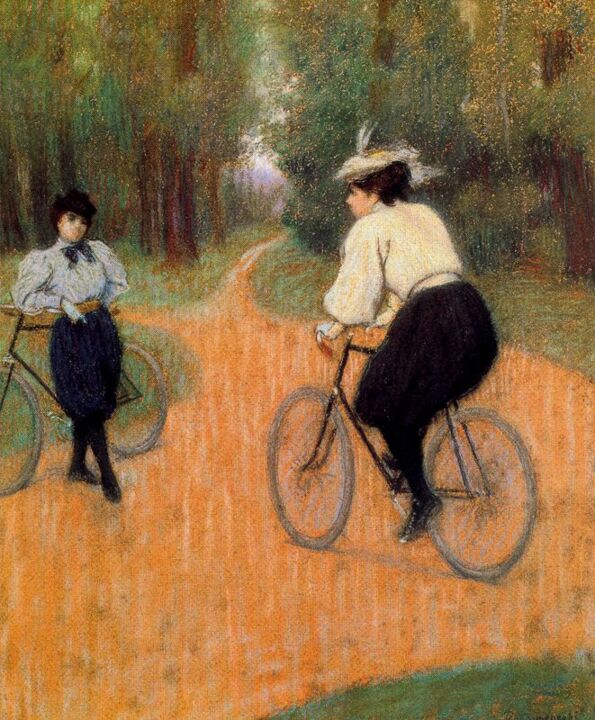Note: If you wish to receive, via e-mail, (1) my weekly newsletter or (2) daily copies of these posts, notify me at [email protected] and indicate which you would like. I promise not to share your e-mail address with anyone. To unsubscribe, send me a follow-up email.
Friday
I’ve spent the last two weeks in Madison with my brother Sam. While he goes off to his job at Quince and Apple (specializing in gourmet jams and preserves), I’ve been bicycling around the city, which is a Mecca for cyclists.
Madison has special bike paths (including some with tunnels that go under major thoroughfares), special bicycle traffic lights and crossings electric bikes that one can rent, “sharrow” markings on certain streets to remind motorists they are to share the road, and signs directed specifically to bikers (“one way—except for bikes”). I’ve seen parents with one and sometimes two children either sitting behind them or pulled in a cart, as well as families of cyclists where everyone has his or her own bike. My brother tells me that Madison also has hardcore cyclists who will commute to work even in sub-zero temperatures, withspecial fat tires that can handle ice and snow.
More sobering, occasionally I’ve seen “ghost bicycles,” painted white and decaying at intersections where cyclists have died after colliding with cars. There’s one of these bicycles on Baldwin and Wilson, a few blocks from my brother’s house on East Mifflin.
While here, I’ve taken one thirteen-mile ride around Lake Monona, the southernmost of the Madison lakes, and another extended trip to the zoo, which is next to the apartment where my family lived for the first month of my life. (My father was a Wisconsin graduate student at the time.) The vistas are breathtaking.
So here’s a William Stafford poem celebrating a bike ride. Although it takes place in a colder season, it captures what it feels like to be riding alone in nature and appreciating the “marvels” that “coast by.” At such moments we become aware of “the splendor of our life.”
When Stafford addresses us as “citizens of our great amnesty,” he is talking about how we have been granted temporary amnesty from death. After all, “we live”:
Maybe Alone on My Bike
By William Stafford
I listen, and the mountain lakes
hear snowflakes come on those winter wings
only the owls are awake to see,
their radar gaze and furred ears
alert. In that stillness a meaning shakes;And I have thought (maybe alone
on my bike, quaintly on a cold
evening pedaling home), Think!–
the splendor of our life, its current unknown
as those mountains, the scene no one sees.O citizens of our great amnesty:
we might have died. We live. Marvels
coast by, great veers and swoops of air
so bright the lamps waver in tears,
and I hear in the chain a chuckle I like to hear.
I’m intrigued by how, after being brought to tears by the beauty of life, the poet hears “in the chain a chuckle.” Could this be, I wonder, an allusion to T.S. Eliot’s Waste Land:“But at my back in a cold blast I hear/ The rattle of the bones, and chuckle spread from ear to ear.” Eliot’s line, in turn, is a riff off Andrew Marvell’s carpé diem poem “To His Coy Mistress”:
But at my back I always hear
Time’s wingèd chariot hurrying near;
And yonder all before us lie
Deserts of vast eternity.
I think that Stafford, in a poem that talks of life as a great amnesty, is telling us (like Marvell) to savor the moments we have been granted. The chuckle of the chain is a reminder that the bike can break down. Even as, in our joy, we veer and swoop, our vehicle lets us know that it won’t last forever.
But rather than the chuckle (or rattle) detracting from the moment, the poet likes to hear it, believing that it enhances the experience. Nothing like a little rattle to focus the mind since, with our senses sharpened, we can hear what only the mountain lakes can hear and see what only the owls can see.
In the stillness of new falling snow, the poet tells us, “a meaning shakes.” Maybe we are not alone as we sense a scene that no one sees.
